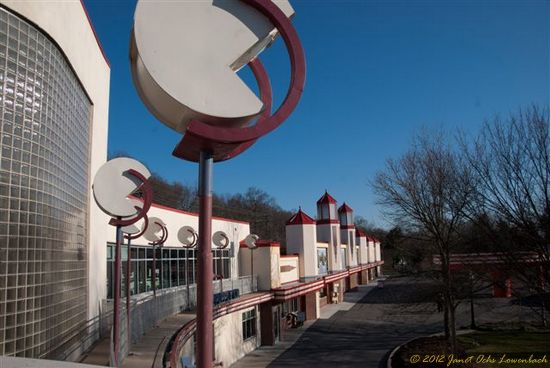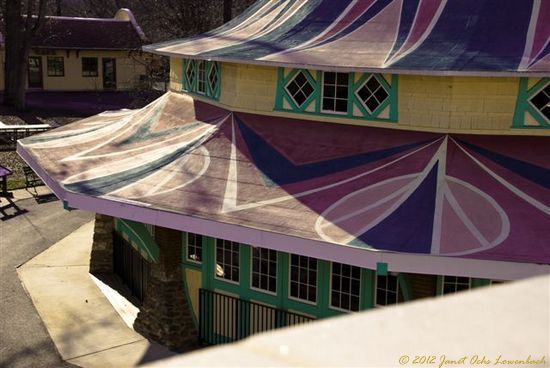This post is written by Guest Contributor, Janet Ochs Lowenbach. If you are also interested in writing a guest blog, please reach out using the form in the Contact page.
On a crisp, abnormally warm winter day, I decided to photograph a local amusement park that had been closed and made into an art center. Assignments like this are challenging because you have to try to do something different from everybody else. You have to go underneath the obvious scene (and its parts) and think about the meaning of what you see. For example, does the building look abandoned and sad? Does it make you feel lonely? Does a sign naming the park remind you of happy times? Does the carousel connote the laughter of children? By approaching the scene with an understanding of what it means to you, you can change the way you portray the park and it elements.
There are other ways that you can make your pictures alive. Look for shapes and lines, the quality of light, for repeating patterns, shots from far and near (or wide angle and telephoto), parts of things that give the whole meaning, reflections – remember you can photograph anything you see-light and dark, textures.
Sometimes people take 10, 20, or 30 pictures the same way over and over again. They stand with the camera at eye level, not moving, and go blam, blam, blam. To change this boring approach, you must move into different positions when you take the picture. The result will be a new way of viewing the subject that you hadn’t thought about before. Eventually you will learn from your movements and be able to predict how you will change the impact of the photo. Repeat after me: up, down, over, under, past, by (past and by mean alongside an object like a wall). These changes add depth and impact to your photos. Note the grass shot from under the pattern of the mirrors on the white building which was top shot past, and the carousel pieces shot down and far and near. Note also that shooting up gives importance to the subject while shooting down diminishes it.
Next time I will shoot more up and down and also demonstrate the impact of Lightroom which I used to edit these pictures.







